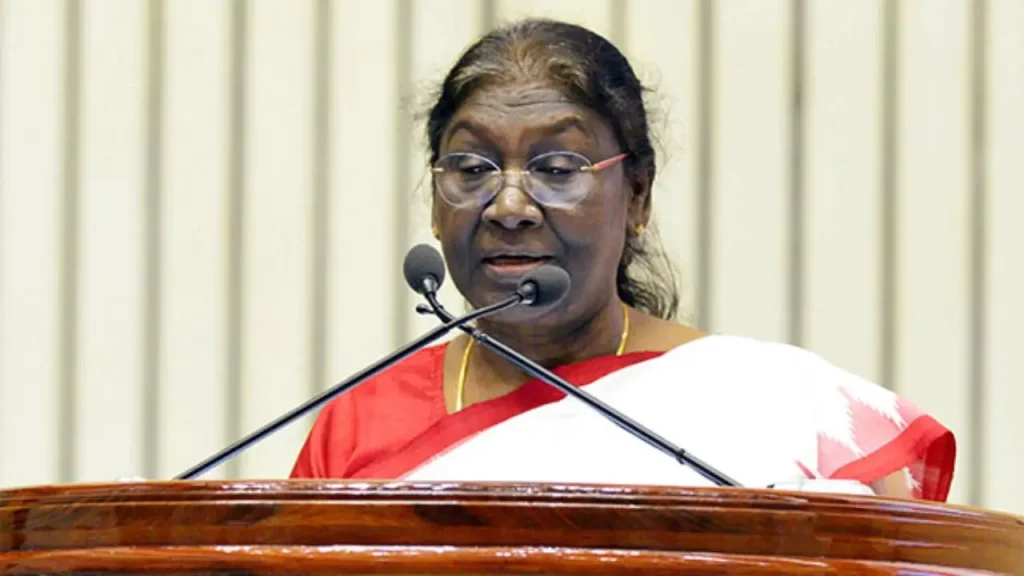Syllabus:
GS2: Structure, Organization and Functioning of the Executive and the Judiciary—Ministries and Departments of the Government; Pressure Groups and Formal/Informal Associations and their Role in the Polity.
Context:
In the exercise of the powers vested in Article 143(1) of the Constitution, President Droupadi Murmu has invoked the Supreme Court’s advisory jurisdiction on whether timelines could be set for the President and Governors to act on Bills passed by state Assemblies.
More on the News
- The reference was made on May 13, five weeks after the SC’s April 8 ruling in which it fixed a three-month deadline for the President to clear Bills reserved for her consideration by the Governor.
- The Presidential Reference has asked if judicial orders can dictate by what time, and how the President and Governors should function under Articles 200 and 201 of the Constitution.
- The President had asked can the exercise of constitutional powers and the orders of/by the President / Governor be substituted in any manner under Article 142 of the Constitution of India.
- The Reference also questions whether a two-judge Bench can rule on key constitutional issues without referring them to a Constitution Bench, as required under Article 145(3).
- The reference asked, Does the Constitution bar any other jurisdiction of the Supreme Court to resolve disputes between the Union Government and the State Governments except by way of a suit under Article 131 of the Constitution of India?
Article 143: Power of President to consult Supreme Court
The Constitution authorises the president to seek the opinion of the Supreme Court in the two categories of matters:
On any question of law or fact of public importance which has arisen or which is likely to arise.
- Here, the Supreme Court may tender or may refuse to tender its opinion to the president.
On any dispute arising out of any pre-constitution treaty, agreement, covenant, engagement, sanad or other similar instruments.
- Here, the Supreme Court ‘must’ tender its opinion to the president.
Nature of Supreme Court advice: The Court noted that its Article 143 advisory opinion isn’t binding but carries strong persuasive value and is usually followed.
Its non-binding nature doesn’t lessen the strength of its reasoning or constitutional principles.
Presidential Reference: Other Key Points:
The reference includes 14 questions of law, primarily derived from the April 8 ruling but extends beyond it. The last three questions address broader concerns about the Supreme Court’s exercise of discretionary powers under the Constitution:
- Question 12: Asks whether the SC must first determine if a case involves a “substantive question of law” or requires “interpretation of the Constitution” before assigning it to a larger Bench.
- Challenges whether smaller Benches should hear such significant matters.
- Question 13: Examines the use of Article 142, which grants the SC discretionary “power to do complete justice.”
- Question 14: Seeks clarity on the scope of Centre-state disputes under Article 131, which grants the SC exclusive original jurisdiction in such cases.
Mains Question:
Q. Discuss the advisory role of the Supreme Court to the President under Article 143 of the Constitution. In light of the recent Supreme Court judgment on the Tamil Nadu Governor’s handling of State Bills, how can the relationship between the judiciary, legislature, and executive be strengthened to uphold constitutional balance and cooperative federalism?

